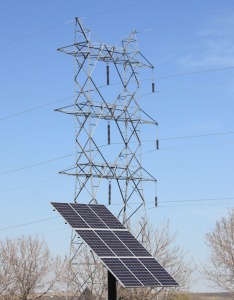Right now the Colorado Legislature is debating Senate Bill 258, the Electric Consumers’ Protection Act, which would allow the state legislature and the Public Utilities Commission (PUC) to help decide Colorado’s future energy policy related to the Environmental Protection Agency’s Clean Power Plan (CPP).
Martha Rudolph, director of environmental programs for Colorado Department of Public Health and Environment (CDPHE), doesn’t want that. She prefers CDPHE (meaning her) decide whether Colorado should embrace carbon cap and trade; how much we should rely on coal versus natural gas and renewable energy; and how much your electricity usage should be curtailed. All of which will profoundly affect Coloradans’ electric bills.
With so much of your money and way of life at stake, shouldn’t your elected representatives along with the PUC have a say?
![]() Some of the state’s radical environmentalist wing argue SB 258 (ECPA) is “bureaucratic” because it would involve “full evidentiary hearings” by the Colorado PUC, the agency that – unlike CDPHE – actually has expertise in electric reliability and rates. CDPHE doesn’t want full evidentiary hearings in which the future of Colorado’s electricity generation would be subject to due process, such as expert testimony and cross examination.
Some of the state’s radical environmentalist wing argue SB 258 (ECPA) is “bureaucratic” because it would involve “full evidentiary hearings” by the Colorado PUC, the agency that – unlike CDPHE – actually has expertise in electric reliability and rates. CDPHE doesn’t want full evidentiary hearings in which the future of Colorado’s electricity generation would be subject to due process, such as expert testimony and cross examination.
Rudolph says Coloradans have no need to worry. She will “consult” with the PUC and let the public have a couple of hearings where each person gets to speak for a few minutes. Then Rudolph and company at CDPHE will decide Colorado’s electric prices going forward for the next 15 years. Since the current PUC Commissioners have demonstrated some concern for ratepayer burden when it comes to renewables, Rudolph can’t trust them to decide consumer costs for her “Ecotopia.”
Despite CDPHE’s claims to the contrary, the EPA’s Clean Power Plan is very different from others in which CDPHE has had sole responsibility. It is the first time the EPA has suggested that state agencies take control of the electric industry outside of the emission-producing facilities. The EPA suggests that utilities, rural electric cooperatives, and municipalities not only increase coal unit efficiency, but also ramp up natural gas-fired plants, increase wind and solar energy, and decrease electricity usage.

It is also the first time that CDPHE may try to impose carbon cap and trade without legislative authorization.
In a recent interview, Randolph stated, the CPP is “sort of the Chinese menu of options, and you can bet that we’re going to be looking at all of them.” She added, “Trading is an idea that actually I’ve been looking at … on a scale that would allow credits to be traded.”
In other words, Rudolph via CDPHE may impose an obligation on Colorado utilities, co-ops, and municipalities to pay for the right to emit carbon via carbon credits.
Who ultimately pays for that? That’s right: you, the electric consumer.
That’s why SB 258 is so important. The legislature and PUC should have the right to ask some questions before these measures may be imposed on you. Among them:
- Should lower-income rural electric consumers in Colorado have to pay for “carbon credits” to Denver metro or California utilities in order for their 75 percent coal-dependent co-ops to keep producing electricity?
- Should the state impose higher renewable energy costs on Colorado consumers than the 2 percent retail rate cap legislated by the Colorado General Assembly?
- If the PUC finds that imposing the EPA plan would result in 20 percent or higher electric rates than the base case by 2025, does the state have the right to deviate from EPA’s mandate?
- Should the state impose a higher electric usage reduction mandate than that agreed to by the Colorado Legislature – 5 percent by 2018 for investor-owned utilities?
- If the PUC finds that implementation of the EPA plan endangers electric reliability (i.e., could cause blackouts), should some electric plants slated for closure be kept online?
If cost and reliability of Colorado’s electric grid are important, which we at the Independence Institute know they are, then your elected representatives and the PUC should have the right to ask and get answers to these questions before approving any plan.

Only SB 258, the Electric Consumers’ Protection Act, will ensure that much needed accountability. The ECPA isn’t bureaucracy or “red tape.” It’s good, responsible government. Because when costs rise and reliability decreases, you will want to know whom to hold accountable.
Since Martha Rudolph is an unelected bureaucrat, it’s not likely to be her. Therefore she shouldn’t have the power to decide Colorado’s electricity future.
Amy Oliver Cooke is the Executive Vice President and Director of the Energy Policy Center for the Independence Institute, a free market think tank in denver


